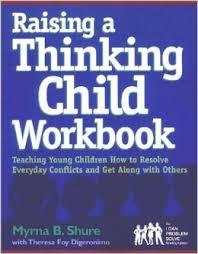This is a checklist I would go through either mentally or by journaling when my kids were smaller to make things go more smoothly. Some of these concepts are more developed in other articles.
Do I set clear and consistent boundaries and follow through with firmness AND kindness? EG When my child won’t leave the store, can I pick her up and carry her out without being ugly to her or losing my temper? She might be crying but am I modeling self-control?
Do I offer limited choices inside those boundaries? EG They can’t choose the Count Dracula Ding Dong chocolate cereal at the store but they can chose between oatmeal and cheerios. They can have freedom within limits. If they can handle this freedom, I can back up a bit with some boundaries.
What has been their diet today? Did they just eat two pieces of birthday cake and drink a juice box? That would be the equivalent of a 140 pound person eating 5 pieces of cake and 3 juice boxes. How would I feel after I eat that?
Do they get enough sleep? Do they have a regular schedule? Children have no internal order so they need external order to feel safe.
Is the child really the problem or is something else bothering me today?
Do I do things to take care of myself? Do I journal to process the 8,000 things I have to do every day?
Do they have down time to process the events of the day or week? Or do they constantly have stimulation coming at them every day?
Do I get down on eye level and listen to them for three minutes five times a day? When they wake up, after school, after nap, etc.
Do I balance out the structure of school, bath time and dinner time with some run around outside crazy time?
Do they have a place to do gross motor skills activities? Do they have dress up clothes so they can role play?
Am I parenting with their adulthood in mind or just trying to get through the day (or hour)?
Am I using ‘I messages‘? “I am willing to wait three minutes to start to read you your bed time story. After that, I am leaving to go.” Then leave after three minutes without any “I told you so’s” or other emotional dumping. You can say “we will try again tomorrow night”. They will come the next night. If they start screaming, say nicely, “I think you are wondering if you scream if you will change my mind. I am not changing my mind”.
Do I communicate to them verbally or nonverbally that it is OK to make mistakes? “We can try again the next time.” “Let’s just wipe up this spill with a rag.” Help them focus on improving in the future and not blaming themselves for the past. What does the child observe about me when I make a mistake?
Do I offer descriptive praise? “You wiped the crumbs off the table. That is what I call being neat and helpful.” Or do I offer false praise? How would you feel if your hair looked like you had just gotten off a roller coaster, you had a dirty T-shirt on and your friend said that you looked fabulous?
Do I empathize with their feelings?
Do I give information so they understand that there is a point to the rule? “Flowers die when we step on them.” “Milk spoils when we leave the refrigerator door open.”
Do I say things negatively or positively? Say what you want them to do instead of what you don’t want them to do. Instead of “Don’t touch”. “Hands to your sides.”
For consequences, make sure they follow the “four Rs”: respectful, reasonable, teaches responsibility, and related. If they don’t pick up their toys, the toys go away for the day/week. If they run into the street, after being told to stay on the grass, they go inside the house for three minutes. (Pick them up kindly without “I told you so’s”. Try empathizing. “I know it would be fun to run wherever we feel like it but it can be dangerous out in the street” as you carry them inside.)
Do I have fun with them? Have them do something fun with you twice a week for 20 minutes. Let them decide what you all will do together.
Do I allow them to focus on something without interrupting them? When I took my daughter to the zoo when she was three, she wanted to stay and stare at the gorilla. But I made the mistake of having a zoo agenda so instead I marched her around because she “needed” to see the alligators, elephants and giraffes, etc. all in one day. I gave her no time for dawdling or enjoying each animal!!! Instead, allow your child to process things at their own pace.
If all else fails, take two aspirin and call me in the morning. Having docile, perfect, compliant children isn’t the goal- just that the child feels more centered and your family life feels more pleasant. I think parenting is an evolving process. A hundred years ago, many physically abused their children. A hundred years from now, we will know so much more. I very strongly believe, though, that all of these techniques are a huge step forward in parenting practices.


